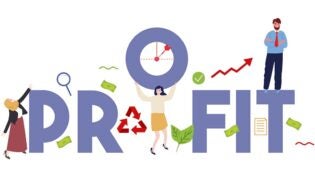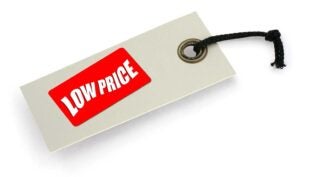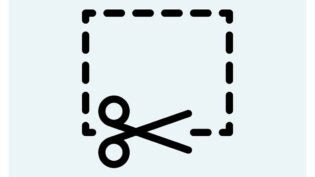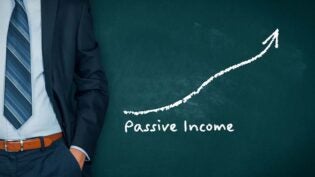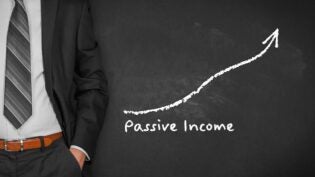
New businesses will often take on every single client or customer they can attract.
If you’re still building your customer base, enhancing your reputation, improving the quality of your services or products, acquiring customer testimonials and developing a ground-swell of word-of-mouth support, then you’ll likely be exceedingly grateful for—and accept—every client walking in the door.
That won’t always be the case.
Over time, as you become more successful, you’ll get to a point where you’ll be able to (or may even need to) turn work down .
The very first time this happens to you, relax and enjoy the ride! Rest assured, this is an extremely high class growth problem to address in your business.
One of the reasons this is such a coveted moment is that it’s usually time to start pricing smartly!
Give Yourself a Raise
This over-abundance of work is basic economics, a function of supply and demand. It means demand has gone up for your time or effort beyond your ability to offer it, or beyond your interest in serving particular types of customers.
If demand for your service goes up, and a customer you’d rather not take on comes to you, then you have a choice. If you choose to take them on, when you know that’s overextending yourself, then you’d have less time or opportunity to focus on the types of customers that will be most beneficial to enabling your future business growth, building your niche expertise, and more.
Ultimately, making the choice to turn down a client means you’re becoming more discerning, either about the clients you accept, and/or about how you spend your time. That process of becoming more discerning can and should be accompanied by a raise—however small or large—to honor and mark the occasion. That’s the first major benefit.
Do you believe a Turn-Down is Rejection? Or Empowerment for Everyone?
It’s worthwhile to review your beliefs surrounding delivering a turn-down response. Are you seeing this rejection of a client in a way that could be detrimental to your reputation or lead to heated confrontation? If you do think of turning down a less-optimal client that way, then you probably aren’t yet seeing the potential value for everyone involved.
By contrast, if you view turning down a client as something valuable for all parties involved, then you create and enable new and rewarding value, optimism, growth, and enhanced networking, in a way that many people would never have expected.
If you turn down a less optimal client, here are some of the benefits you might not have considered, yet:
- You’ll get to focus your online business growth and serve your optimal clients in a more optimal way. You’ll get to develop your expertise more, enjoy your work more, charge more, and create more satisfied clients who will then happily refer you to still other more optimal clients in the future, for all the right reasons.
- You’ll provide recommendations to the client you’re turning down for other providers better suited to the client, who may very well charge them less, or be more optimal for their specific-niche needs. You’ll come across as an expert who has pre-screened those other providers, which minimizes or eliminates the client’s need to put in extra work to find someone else. And, in spite of the turn-down, you still deliver value (without a bill attached) and show you care about your turned-down client.
- The referred provider(s) will be immensely happy for the referral and work their tail off to deserve more such referrals from you in the future (whether or not you gain any referral or affiliate reward). Smart people know the value of justifying your good recommendation.
- You’ll demonstrate how a turn-down doesn’t have to be a Rejection, or a No; instead, it can be a “let’s maximize everyone’s value” win-win-win-win proposition. You win. Your other clients win. The non-targeted client wins. The referred provider wins. And everyone’s future customers win.
Do You Homework Before Turning Them Down
Before you turn down a non-targeted client, do a little homework. Figure out the niches that match the people or businesses you often hear from and that you’re less and less interested in serving in the future. Then go hunting for top-notch competitors in these target niches. Make sure they’re not your key desired client niche(s).
If you don’t personally know these people, then I recommend you call or email them first, and tell them directly that you may have some people to refer to them at some point soon. Tell them you’re starting to receive requests you don’t want to handle, and are looking for people to refer those potential clients to.
It’s entirely up to you if you want to ask about a referral business relationship (affiliate referrals) or not. Don’t make this research project entirely about that, but if it comes up, you can discuss the matter. Some professionals will tell you they’ll gift you with something, to show thanks for referrals. Some want to formalize it, some want to avoid it. In more traditional professions like doctors, lawyers, or psychologists, referrals are considered a professional courtesy and referral kickbacks should not be discussed. In marketing, sometimes it’s a courtesy and sometimes there are business rewards explored.
Without question, if you clearly explain to a client you’re turning down that there’s no affiliate relationship, the absence of any affiliate reward coming to you elicits strong credibility and power, in terms of how you’re perceived by that client. It says “I’m not taking you on, but I care about your success, and I’m sending you to someone I believe does good work; I’m earning nothing for the referral.”
So, collect names of people who do great work in target niches different to yours, so that you can build a referral list for the future. Call them and let them know you’d like to send them people. They may very well eventually also want to send you people in your niche; you never know!
You’ll want these names handy later on, when you turn any less-than-optimal client away.
How to Write a Client Re-Direct Email
You’ve done your homework ahead of time, and now you have decided to send a non-targeted client to someone else. What does this valuable client-redirect email look like?
Dear [Name],
Thank you for your interest in hiring me to help you X Y & Z.
I’m going to choose to decline your request for a simple reason: I’m not sensing an optimal match between my niche services, and your business {or requested service} niche.
I don’t take every client, because my choice of whose projects to take on isn’t just about money; at this point in my business growth, it’s mostly about a strategic fit in both directions.
I deeply appreciate that you think I’m a strategic fit for you — I take it as a BIG compliment – and also, I don’t really feel there’s a strategic fit from my own perspective. This is unfortunate for both you and me, because I always hope every incoming request will be requesting the work I’m most excited about doing.
But I always think of every business choice and potential customer email as an opportunity to create ideal or next-to-ideal solutions.
I’ve gone to some measurable effort to find a list of high quality people I would recommend who do similar work that I do, who I think might be a great fit for you. Here’s that list:
Name – Phone/Email – Skills, Specializations – what type of client they like
Name – Phone/Email – Skills, Specializations – what type of client they like
Name – Phone/Email – Skills, Specializations – what type of client they like
Name – Phone/Email – Skills, Specializations – what type of client they like
If I were you, I’d start by calling [Name 1], then [Name 2], then [Name 3], and just go with the first person in that order that lights you up.
You can let them know I sent you, or not. It’s up to you. This isn’t an affiliate recommendation and I’m not seeking to profit from the referral. I do want you to become more successful and I’m seeking to ensure someone terrific takes care of you, who will likely be a much closer fit for your business.
Best regards and to your success,
[Your name]
P.S. I’m always interested in updating my list of recommendations. So after you’ve had an experience with any of the above people, please drop me an email letting me know about your experience, whatever happens (pro or even con). From my perspective, I’m expecting great results for you!
Making Your Turn Down a Success
An email like this hits all the right notes!
Any customer prospect receiving an email like this will obviously not be pleased that you said no, but will have an enormously hard time being angry or upset at you. They will still respect you, hold you in high regard and speak highly of you to others.
Finally, once they follow your advice and find someone else in your recommendation(s) list who delivers high quality services to them, they WILL be happy, and they can’t help but attach that feeling of happiness directly back to their memory of you. This is a key ingredient in your future business growth, so take the time to refer your non-targeted clients the right way!
Over to You
Have you turned down a non-targeted client in the past? If so, what happened? And, what will you do it differently based on what you’ve read in this post? Leave me a comment and let me know!
This article was originally published by Firepole Marketing
Author: Jonathan Altfeld is an expert in congruent, clear, ethically influential business communication skills. Many of his corporate clients have hired him to completely rewrite the emails they send out, in order to maximize open-rates and customer response rates (and turnaround time). He creates training courses, coaches on a variety of topics, and consults around the globe, both for consumers and business clients. Finally, he’s also got some great home-study materials to learn from as well. You can learn more about Jonathan and his offerings through the Mastery InSight Institute.
Published: May 14, 2014
4687 Views
4687 Views






